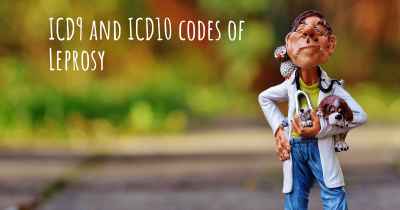Which are the causes of Leprosy?
See some of the causes of Leprosy according to people who have experience in Leprosy

Leprosy, also known as Hansen's disease, is a chronic infectious disease caused by the bacterium Mycobacterium leprae. It primarily affects the skin, peripheral nerves, mucosa of the upper respiratory tract, and the eyes. Leprosy is a highly stigmatized disease that has plagued humanity for centuries, but its causes and transmission have been extensively studied.
Mycobacterium leprae is the main causative agent of leprosy. This bacterium is slow-growing and has a unique ability to infect peripheral nerves, leading to the characteristic symptoms of the disease. However, not everyone who comes into contact with the bacteria develops leprosy, indicating that other factors play a role in disease progression.
Transmission
Leprosy is primarily transmitted through respiratory droplets when an infected person coughs or sneezes. It is believed that prolonged and close contact with untreated individuals is necessary for transmission to occur. The exact mechanisms of transmission are not fully understood, but it is thought that the bacteria enter the body through the respiratory tract and then invade peripheral nerves.
Factors Influencing Susceptibility
Several factors influence an individual's susceptibility to leprosy:
- Genetics: Certain genetic factors are associated with an increased susceptibility to leprosy. Variations in genes related to the immune system, such as the human leukocyte antigen (HLA) genes, have been found to play a role in disease susceptibility.
- Immune Response: The immune response to Mycobacterium leprae varies among individuals. People with a weakened immune system, such as those with HIV/AIDS or malnutrition, are more susceptible to leprosy.
- Environmental Factors: Living in crowded and unsanitary conditions, with poor access to healthcare, increases the risk of leprosy transmission. Poverty, inadequate nutrition, and lack of clean water also contribute to disease susceptibility.
Incubation Period
After exposure to the bacteria, the incubation period for leprosy can range from a few months to several years. This long incubation period makes it difficult to determine the exact source of infection and contributes to the challenges in controlling the disease.
Conclusion
Leprosy is caused by the bacterium Mycobacterium leprae and primarily transmitted through respiratory droplets. However, not everyone who comes into contact with the bacteria develops the disease, as genetic, immune, and environmental factors influence an individual's susceptibility. Understanding the causes and transmission of leprosy is crucial for implementing effective prevention and control strategies.








